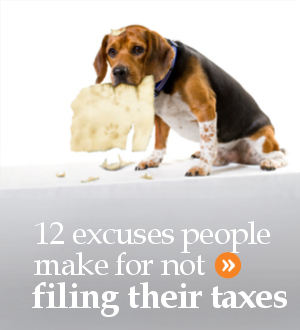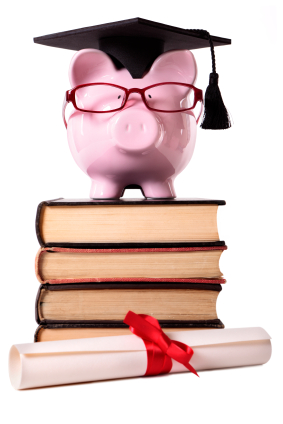The Benefits of Filing Your Personal Tax Return in Canada
Making Smart Financial Management Decisions
Do you dread filing your income taxes? Can you come up with every excuse in the book not to? When it comes right down to it, part of being financially responsible means understanding the benefits to filing your tax return in Canada, even if you end up owing.
The deadline to file personal income taxes is April 30 and even though self employed Canadians don’t need to file until June 15, if you owe Canada Revenue Agency (CRA, formerly known as Revenue Canada) any money, it must be paid no later than April 30 to avoid any penalties. Because April 30, 2023 is a Sunday, the deadline for filing and paying any money you owe for the 2022 tax year is May 1, 2023. Your tax return and payment will be considered on time if postmarked or processed on or before May 1, 2023.
12 Excuses People Make About Why Not to File a Tax Return
Are you trying to make up excuses to not file your income tax return? Click on each link below and see if your excuses stack up:
- I Won’t Get a Refund
- My Paperwork & Finances Aren’t Organized
- I Don’t Know Which Deductions I Can Claim
- I Don’t Understand the Income Tax Forms & I Need My Refund Right Away
- I Don’t Earn Much Money So I Don’t Need to File a Tax Return
- I’m a Student, So I Don’t Need to File
- I Don’t Know Where to Get Help Filing My Taxes
- Income Tax is Deducted From My Pay But I Don't Know What Else to Deduct
- I Heard That It’s Easier with Tax Software, But I Don’t Know Which One to Buy
- I Missed Filing for a Few Years So Now I Don't Want Them to Notice Me
- Taxes Are All About RRSPs But I Don't Understand How RSPs Work
- I Don’t Know What to Do if I Owe Money on My Taxes
I’m in Debt and Need Help – I Can't Afford Another Bill
Most Canadians Get a Refund – The Odds are in Your Favour 
People are really afraid of receiving a tax bill that they can’t afford to pay, but according to CRA, about 60% of people who file a personal income tax return will be eligible for a refund during the 2023 tax-filing season (for money earned in 2022). And if you need a bit more incentive, income tax refunds average around $1,700 most years! The odds are in your favour. If you do end up owing this year, not only can you make payment arrangements and pay in installments, you can also take steps to avoid owing next year.
Tax Preparation - Good Timing for Financial Organization
By now you should have received all of your tax slips and related documents. If you haven’t, start tracking down what’s missing by calling the companies. They should have sent all tax-related information out by the end of February. This is a great time of year to get all of your financial paperwork organized, so as you prepare your taxes, take a few minutes to also get organized for next year.
File Your Income Tax Early and Don’t Miss Any Deductions
Rushing to file your taxes at the last minute means that you might miss something or end up paying extra to whoever prepares your return. By claiming all of the deductions that you’re entitled to, and there's always something new each year, you will maximize your refund (or decrease what you owe) and be able to take advantage of any credits available to you.
Tips from CRA That You Need to Know For the 2023 Tax-Filing Season
File Your Taxes Electronically & Sign Up for Direct Deposit to Your Bank Account - Get Your Refund Fast & Avoid Forms
Using CRA’s electronic filing system means that you don’t need to fill out countless tax return forms and your return is processed quickly. In the 2022 tax-filing season, Canadians filed approximately 31 million returns and 92% of them were filed electronically. Any refund can even be deposited directly to your bank account in as little as 8 days! By signing up for CRA's My Account you can track your refund as well as manage your account. If you need the cash right away, filing sooner than later is your best bet to speed things up. Using an instant refund service when someone prepares your tax return is a costly way to get your cash back quickly. Keep your money where it belongs; in your pocket, not someone else’s.
Tax Credits - Why You Should File Even with No Income or in a Low Tax Bracket - GST/HST Refund
Some people don’t think it’s worth filing if they don’t have much or any income to declare. Nothing could be further from the truth. Even in a low tax bracket, here are some reasons why:
- To claim your tax credits (e.g. provincial, education or disability tax credits).
- To be eligible for certain rebates, benefits or programs (e.g. child tax credits and benefits, old age security, provincial medical premium assistance, GST/HST refunds, medication payment assistance, nursing home / community or rental living support, etc.) you need to file your income tax because these programs base your eligibility on your previous year’s reported income level. Filing late can also delay receiving your benefits.
- Filing your tax return creates RRSP contribution room that you can carry forward and use when your income increases.
After you file your income tax return, and once it has been processed by CRA, you will receive a Notice of Assessment. They look a bit different than they used to and should be easier to understand. Put your Notice of Assessment somewhere safe so that you can find it when you need it. It confirms the information you provided on your tax return and shows you what your RRSP contribution limit is.
List of Common Adjustments CRA Makes to Tax Returns
Tax Advantages of Being a Student
Students take note – here are some more reasons why you should file your income taxes:
- While you’re studying there are education deductions and credits you’re entitled to, with possible education tax credits carried forward from previous years.
- After attending a post-secondary program, your intention is likely to get a job in your chosen industry with a higher salary. When you do, you’ll want to start saving in your RRSP not only for retirement or the home-buyers plan, but also to help reduce how much income tax you pay. The additional room you created by filing your taxes when you had little or no income can be a big bonus once you’re done school and your employment income increases.
- If you used a student loan, you’ll be able to deduct the interest you’re paying (once you’re in repayment status) when you file your income taxes.
How to Get Free Help Filing Your Taxes - Visit the Canada Revenue Agency Website
If you feel overwhelmed and aren’t sure where to start, visit the Canada Revenue Agency website or give them a call. They have a lot of extra staff available during tax filing season and will provide you with information and resources to point you in the right direction.
Should You DIY or Hire a Pro for Filing Taxes?
Reduce How Much Income Tax is Deducted
If you anticipate receiving a large refund next year, consider asking your employer to reduce how much income tax they deduct from your pay cheques. Large refunds are often the result of large deductions for child care expenses, RRSP / RSP contributions or post-secondary education expenses for either yourself or a family member.
Having less income tax deducted as part of your overall financial planning is another way to free up a bit of cash in your budget each month, rather than letting the government use your money until you claim your refund.
Use Tax Software, Ask Friends or Family or Hire a Tax Services Company or Accountant to Do Your Taxes If You Don't Know How
If you don’t know how to do your taxes, including how to file your online taxes, or you’re not sure what to claim or deduct, ask for help from a trusted family member or friend, a community organization, a tax preparation specialist or an accountant. Most professionals charge for their services, so ask about their fees before you make an appointment.
NETFILE, EFILE and Check Online Reviews
Another option may be to buy tax preparation software. Check reviews online to compare what different brands have to offer and if they’re 2022 NETFILE certified. Tax software certified by CRA sends returns directly to Netfile; you don't need to upload a .tax file to submit your return. Some software has a free trial or is free to file a limited number of basic returns. There are even some mobile app options. It’s worth checking around for a program that suits your needs.
- NETFILE is the CRA system for filing your own tax return.
- EFILE is the CRA system tax preparers use to file on someone’s behalf. With your consent, certain fields can be filled in automatically to make it faster and easier for your tax preparation specialist to complete your return.
Investigate how much qualified support comes with whatever program you plan to buy in case you have questions. The NETFILE information from CRA is a good place to start and can show you which options are free and which ones you need to pay for.
How to Catch Up Filing Your Taxes if You’ve Missed a Few Years or Missed the Deadline
Even if you haven’t filed your taxes for a few years, or if you missed the deadline, CRA has programs to help you catch up because eventually, they will notice. A lot of refunds and credits also go unclaimed each year because people didn’t file their income taxes. If you file your returns from previous years and realize that you owe money, it’s better to find that out sooner than later, before the fees, penalties and interest get worse.
One program CRA has available is called the Voluntary Disclosure Program, and it is open to those who initiate the process on their own, however, eligibility criteria can change from year to year. The thing to remember is that if CRA contacts you first, things change quickly, not necessarily in your favour.
How RRSP and RSP Contributions Work
RRSP stands for Registered Retirement Savings Plan and RSP is just a short version of RRSP. They are specific types of savings accounts. Simply stated, the purpose of an RRSP is to save money during a time when you're earning more so that you have money later when you're earning less. You receive tax benefits from saving money in an RRSP.
The amount of income you report each year on your income tax returns determines your RRSP contribution limit. Unused contribution room carries forward and you can take advantage of it in the future.
By investing in RRSPs when you're working, you are able to reduce how much income tax you pay. Later, when you're retired and you withdraw money from your retirement savings accounts, you must pay income tax on what you withdraw. However, because you're not earning as much when you withdraw the money, you pay less income tax.
Some people do have significant income during retirement and still find themselves in a high tax bracket, so your retirement savings plans should fit into an overall financial plan. Speak to your financial planner for more information about financial planning and investing.
What to Do if You Owe Money on Your Taxes - Deal with Tax Debts Sooner Than Later
It is more important to pay off debt owing on taxes than debt owing on credit cards or personal loans. While the debt collectors from the government might not call quite as often as other collection agents do, they have more power over your financial affairs than any other creditor does in Canada.
If you owe money on your taxes, start by looking where you spend your after-tax income. To identify where your money is going, track what you spend. Next, create a realistic personal budget to account for your monthly and irregular expenses, as well as minimum payments on your other debts. Then, look for ways to decrease your expenses and/or increase your income so that you can make a payment arrangement with CRA to clear up what you owe on your tax debts as quickly as possible.
COVID-19, Impact On Your Taxes
Are you wondering about the impact of Covid-19 benefits on your taxes this year? Here are a few key updates:
- If you received federal, provincial, or territorial government COVID-19 benefit payments, such as the Canada Recovery Benefit, Canada Recovery Caregiving Benefit, Canada Recovery Sickness Benefit or Canada Worker Lockdown Benefit, you will have received a T4A slip with instructions on how to report these amounts on your return.
- CRA has created the T1B request to deduct federal COVID-19 benefits repayment in a prior year. If you repaid benefit amounts before January 1, 2023, you may choose when and how to claim the deduction on your tax return.
That means that you can claim your repayments as a deduction in the year you made the repayment or in the year you received the benefits. You may also split the deduction between your tax returns, as long as you do not deduct more than what you repaid.
If you received Canada Emergency Response Benefit (CERB) payments in 2020, you will have needed to pay tax on it by 2021 to avoid penalties. If you received CERB payments in error and need to pay them back, but didn't do this back before 2021, then you will still need to pay taxes on the payments you received in error (you will get this tax back in next year's return).
If you are still working from home, the process for claiming deductions has been simplified. If you are eligible, you are still able to claim a $2/day deduction for home office expenses. You will not need to file T2200, T2200S, or T777S to claim this deduction. See the government website for more details.
Your reported income determines your eligibility for income-tested benefits like child tax credits or the Old Age Security (OAS) credit. If you are earning more to compensate for higher living costs, or less due to a reduction in income, your income tax return will be affected. It would be wise to plan ahead accordingly for next year as you learn more about your taxes this year.
How to Get Help with Your Debts
Don’t be afraid to ask for help to manage your finances if you need it. There are Canadian non-profit credit and debt counselling organizations who are happy to answer your questions about credit and help you create a budget to deal with personal debt.
If you are in debt and aren’t sure how to manage what you owe to your creditors and for your income tax arrears, get help sooner than later. You’ll have more options available to you and you’ll feel better once you have a plan.
Related information:
How to Use a Balanced Approach to Pay Off Debt & Invest in RRSPs
Understand Your Notice of Assessment
Handy link: TurboTax - Tax Deduction Calculator / Estimator
This article was originally published March 20, 2013 and updated most recently in March 2023.
<< Go back to the Blog main page

Comments
small business ... replied on Permalink
Benefits Of & How to File Taxes in Canada - Get Your Refund |
Jay replied on Permalink
Benefits Of & How to File Taxes in Canada - Get Your Refund |
Anonymous replied on Permalink
Pay in installments